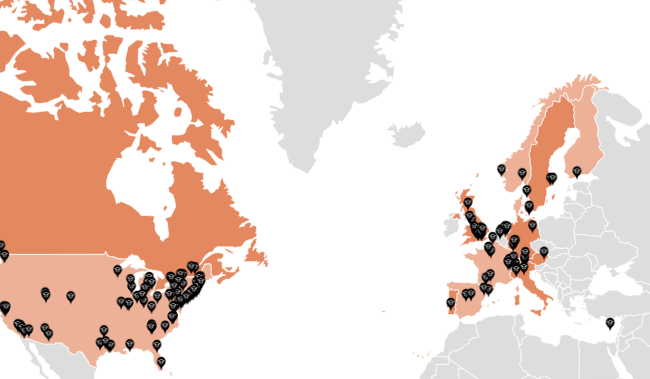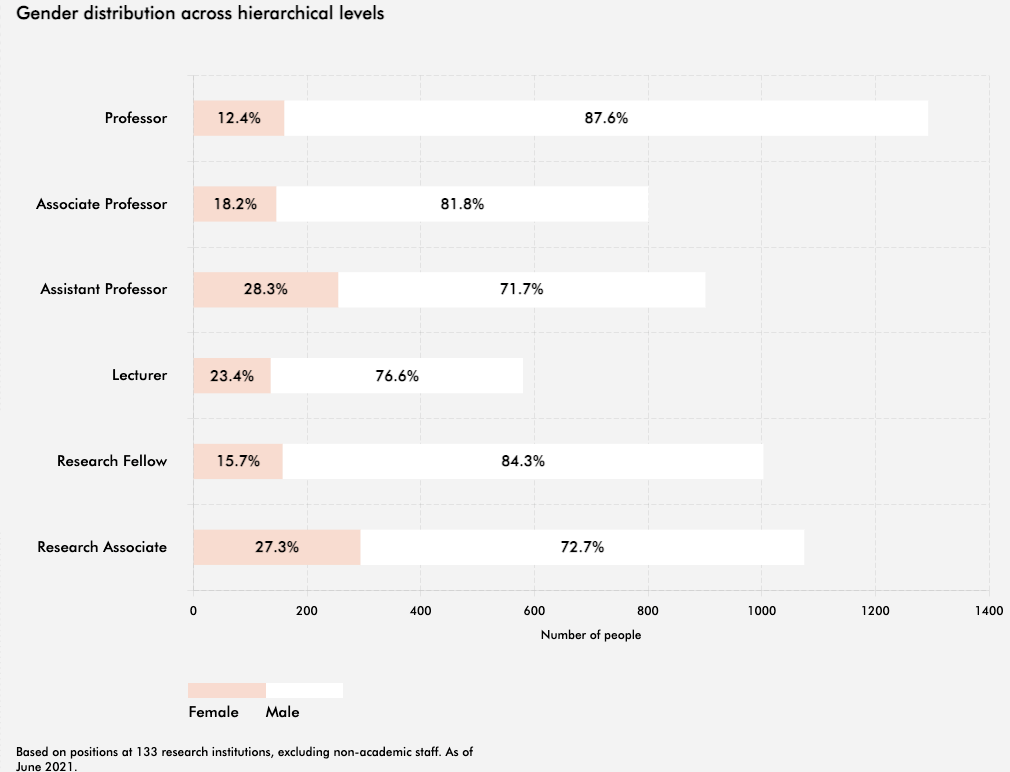SHoF tracks representation of female researchers in finance
Jan. 30, 2023
How gender-equal is higher education? The Swedish House of Finance launches the “Women in Finance Database” to facilitate fact-finding and induce action from academic institutions. In 2021, only 20% of researchers working at finance departments at leading universities were women.

Female representation varies widely within academia and financial economics seems to be especially gender unequal. To increase the knowledge about the share of female researchers, SHoF launched the “Women in Finance Database”, a tool to monitor the participation of women working at finance departments at leading research institutes around the world. The purpose of the project is to make the number and share of women and the changes in these statistics more salient to the public.
“The tool is a service to the academic community. The data can be used for benchmarking. If you want to say something about the diversity of your own research group, it is of course much easier if you can compare it to others or to an average”.
Göran Robertsson, Executive Director, Swedish House of Finance
SHoF collected information about 5,653 researchers at 133 research institutions across 20 countries. All finance departments and divisions at universities and business schools featured in UT Dallas Business School’s Global Top 100 and European Top 50 rankings were included. The statistics can be visualized on a country, institutional, and seniority level, ranging from research associate to full professor.
The Women in Finance database will become a panel dataset that is updated at a yearly frequency. Over time, one will be able to analyze researchers’ movement patterns, including their position changes, and dropout rates, and whether these differ from their male peers.
Fewer women at the top
As of June 2021, on average, only one out of five researchers in financial economics were women. However, this number varies significantly across countries, universities, and hierarchical levels. A striking pattern found among almost all countries and institutes is that the proportion of female researchers declines with increasing seniority. This pattern seems to be even stronger among the highest ranked institutions in terms of number of publications in the most prominent scientific journals.

In Sweden, there is a total of 32 female researchers working in the three Swedish universities featured in the database (The Stockholm School of Economics, Stockholm University, and the University of Gothenburg). After Australia, Sweden has the second highest female representation: 29% of academic positions are filled by women. On the full professor-level, however, the country falls to the third position, behind Norway and Canada, with 19% female Professors.
“It is good to keep in mind that we are often talking about only a handful of female professors. So, if one of them moves or retires, institutions and/or countries can plummet or rise fast in the rankings. On a similar note, it is tougher for large departments to have a high percentage of women relative to tiny departments”
Marieke Bos, Deputy director and researcher at Swedish House of Finance.
A benchmark tool towards a more diverse finance industry
The tool will make the relative share of women across universities more salient and hence create incentives for universities to continue recruiting out of a diverse talent pool. These more diverse groups of academics will teach in the MBA, MSc, and BSc programs in Finance and in this way impact the current and future employees in the private and public sectors of the financial industry. Hence a deeper knowledge of financial economics can eventually also lead to more effective policy and financial markets.
“A more diverse staff will increase innovative thinking, improve the work environment, and eventually lead to higher knowledge for society at large.”
Marieke Bos, Deputy director and researcher at Swedish House of Finance.
